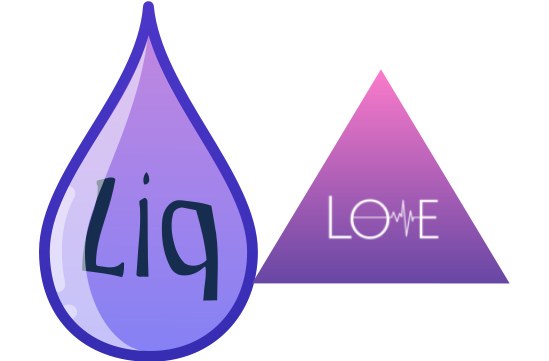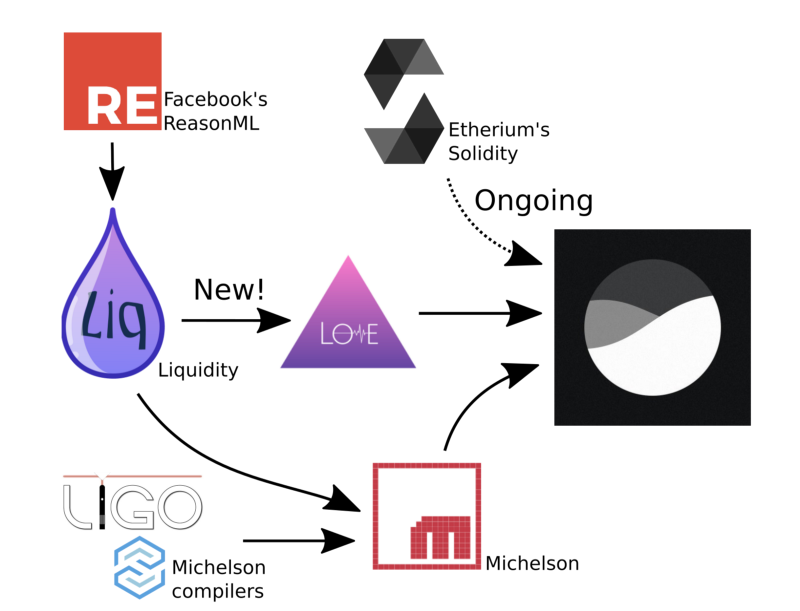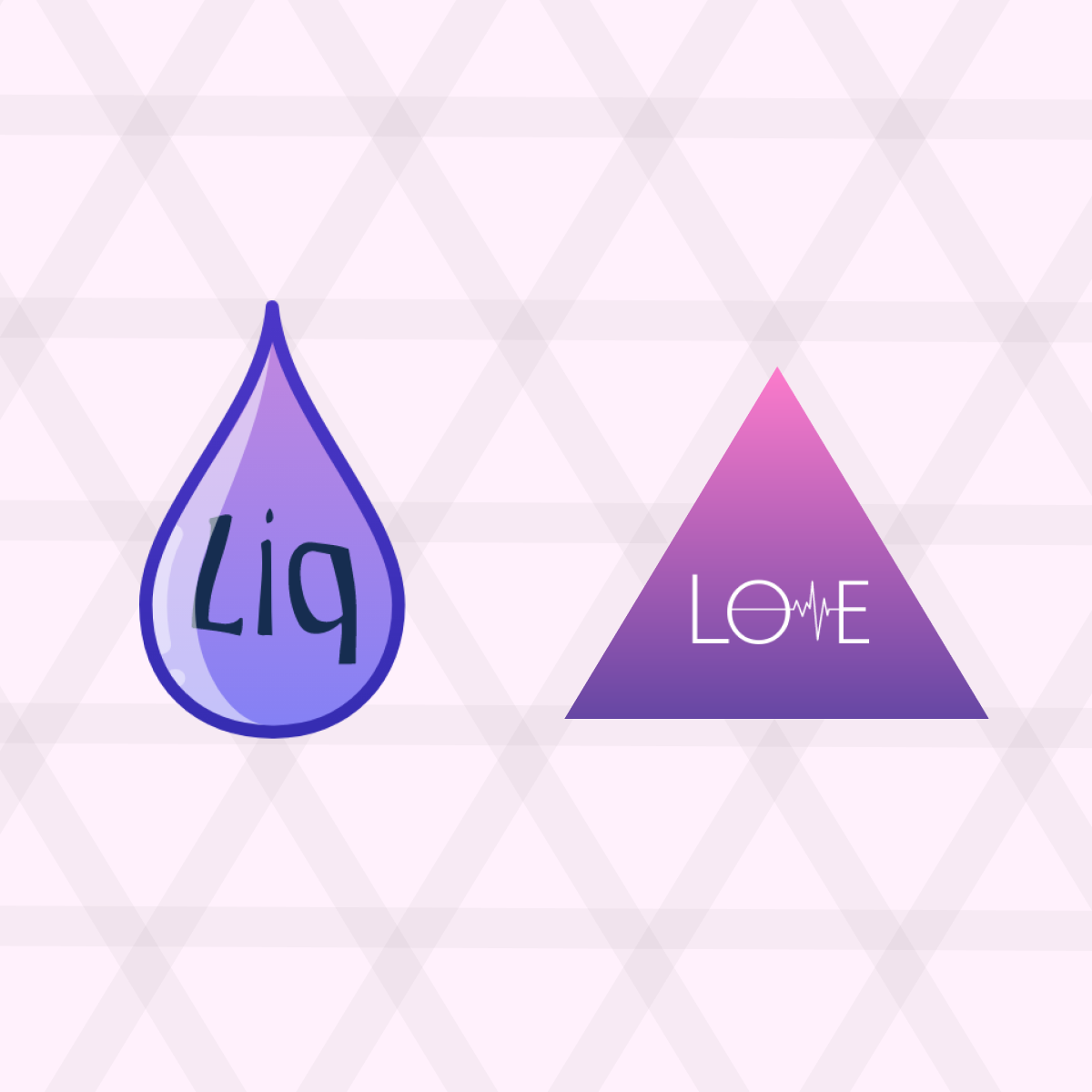A Dune Love story: From Liquidity to Love
By OCamlPro & Origin Labs
Writing smart contacts may often be a burdensome task, as you need to learn a new language for each blockchain you target. In the Dune Network team, we are willing to provide as many possibilities as possible for developers to thrive in an accessible and secure framework.
There are two kinds of languages on a blockchain: “native” languages that are directly understood by the blockchain, but with some difficulty by the developers, and “compiled” languages that are more transparent to developers, but need to be translated to a native language to run on the blockchain. For example, Solidity is a developer-friendly language, compiled to the native EVM language on the Ethereum blockchain.
Dune Network supports multiple native languages:
- Love, a type-safe language with a ML syntax and suited for formal verification
- Michelson, inherited from Tezos, also type-safe, much more difficult to read
- Solidity, the Ethereum language, of which we are currently implementing the interpreter after releasing its parser in OCaml a few weeks ago
On the side of compiled languages, Dune Network supports:
- Liquidity, a type-safe ML language suited for formal verification, that compiles to Michelson (and allows developers to decompile Michelson for auditing)
- ReasonML, a JavaScript language designed by Facebook that compiles down to Michelson through Liquidity
- All other Tezos languages that compile to Michelson (for example Ligo, SmartPy, Albert...)
Though Liquidity and Love are both part of the ML family, Liquidity is much more developer-friendly: types are inferred, whereas in Love they have to be explicit, and Liquidity supports the ReasonML JavaScript syntax while Love is bound to its ML syntax.
For all these reasons, we are pleased to announce a wedding: Liquidity now supports the Love language!

Liquidity now supports generating Love smart contracts
This is great news for Love, as Liquidity is easier to use, and comes with an online web editor, Try-Liquidity. Liquidity is also being targeted by the ConCert project, aiming at verifying smart contracts with the formal verification framework Coq.

The Smart Contract Framework on the Dune Network
Compiling contracts from Liquidity to Love has several benefits compared to Michelson. First, Love contracts are about 60% smaller than Michelson contracts, hence they are 60% cheaper to deploy. Also, the compiler outputs a Love contract that can be easily read and audited.
The Love compiler is part of the Liquidity project. It works as follows:
- The Liquidity contract is type-checked by the Liquidity compiler. The strong type system of liquidity enforces structural & semantic properties on data.
- The typed Liquidity contract is compiled to a typed Love contract. During this step, the Liquidity contract is scanned to check if it complies with the Love requirements (correct use of operators, no reentrancy, etc.).
- The Love contract is type-checked. Once this step is completed, the contract is ready to be deployed on the chain!
Want to try it out? Check the Try-Liquidity website: you can now compile and deploy your Liquidity contracts in Love from the online editor directly to the Mainnet and Testnet using Dune Metal!
These are some of the resources you might find interesting when building your own smart contracts:
- The Love Language Documentation: https://dune.network/docs/dune-dev-docs/love-doc/introduction.html
- Try-Liquidity: https://www.liquidity-lang.org/edit/
- The Liquidity Website: https://www.liquidity-lang.org/
- The Dune Network Website: https://dune.network
About Origin Labs
Origin Labs is a company founded in 2019 by the former blockchain team at OCamlPro. At Origin Labs, they have been developing Dune Network, a fork of the Tezos blockchain, its ecosystem, and applications over the Dune Network platform. At OCamlPro, they developed TzScan, the most popular block explorer at the time, Liquidity, a smart contract language, and were involved in the development of the core protocol and node. Feel free to reach out by email: contact@origin-labs.com.
Au sujet d'OCamlPro :
OCamlPro développe des applications à haute valeur ajoutée depuis plus de 10 ans, en utilisant les langages les plus avancés, tels que OCaml, Rust, et WebAssembly (Wasm) visant aussi bien rapidité de développement que robustesse, et en ciblant les domaines les plus exigeants (méthodes formelles, cybersécurité, systèmes distribués/blockchain, conception de DSLs). Fort de plus de 20 ingénieurs R&D, avec une expertise unique sur les langages de programmation, aussi bien théorique (plus de 80% de nos ingénieurs ont une thèse en informatique) que pratique (participation active au développement de plusieurs compilateurs open-source, prototypage de la blockchain Tezos, etc.), diversifiée (OCaml, Rust, Cobol, Python, Scilab, C/C++, etc.) et appliquée à de multiples domaines. Nous dispensons également des [formations sur mesure certifiées Qualiopi sur OCaml, Rust, et les méthodes formelles] (https://training.ocamlpro.com/) Pour nous contacter : contact@ocamlpro.com.
Articles les plus récents
2025
2024
- opam 2.3.0 release!
- Optimisation de Geneweb, 1er logiciel français de Généalogie depuis près de 30 ans
- Alt-Ergo 2.6 is Out!
- Flambda2 Ep. 3: Speculative Inlining
- opam 2.2.0 release!
- Flambda2 Ep. 2: Loopifying Tail-Recursive Functions
- Fixing and Optimizing the GnuCOBOL Preprocessor
- OCaml Backtraces on Uncaught Exceptions
- Opam 102: Pinning Packages
- Flambda2 Ep. 1: Foundational Design Decisions
- Behind the Scenes of the OCaml Optimising Compiler Flambda2: Introduction and Roadmap
- Lean 4: When Sound Programs become a Choice
- Opam 101: The First Steps
2023
